Hyundai IONIQ 6 vs VW ID.3 - Differences and prices compared
Compare performance (650 HP vs 326 HP), boot space and price (37600 £ vs 28600 £) at a glance. Find out which car is the better choice for you – Hyundai IONIQ 6 or VW ID.3?
Costs and Efficiency:
Price and efficiency are often the first things buyers look at. Here it becomes clear which model has the long-term edge – whether at the pump, the plug, or in purchase price.
VW ID.3 has a distinct advantage in terms of price – it starts at 28600 £, while the Hyundai IONIQ 6 costs 37600 £. That’s a price difference of around 9060 £.
In terms of energy consumption, the advantage goes to the Hyundai IONIQ 6: with 13.90 kWh per 100 km, it’s hardly perceptible more efficient than the VW ID.3 with 14.50 kWh. That’s a difference of about 0.60 kWh.
As for range, the Hyundai IONIQ 6 performs hardly perceptible better – achieving up to 614 km, about 9 km more than the VW ID.3.
Engine and Performance:
Under the bonnet, it becomes clear which model is tuned for sportiness and which one takes the lead when you hit the accelerator.
When it comes to engine power, the Hyundai IONIQ 6 has a clearly edge – offering 650 HP compared to 326 HP. That’s roughly 324 HP more horsepower.
In acceleration from 0 to 100 km/h, the Hyundai IONIQ 6 is clearly quicker – completing the sprint in 3.20 s, while the VW ID.3 takes 5.70 s. That’s about 2.50 s faster.
In terms of top speed, the Hyundai IONIQ 6 performs evident better – reaching 257 km/h, while the VW ID.3 tops out at 200 km/h. The difference is around 57 km/h.
There’s also a difference in torque: Hyundai IONIQ 6 pulls evident stronger with 770 Nm compared to 545 Nm. That’s about 225 Nm difference.
Space and Everyday Use:
Whether family car or daily driver – which one offers more room, flexibility and comfort?
Both vehicles offer seating for 5 people.
In curb weight, VW ID.3 is slight lighter – 1787 kg compared to 1850 kg. The difference is around 63 kg.
In terms of boot space, the Hyundai IONIQ 6 offers hardly perceptible more room – 401 L compared to 385 L. That’s a difference of about 16 L.
When it comes to payload, VW ID.3 slight takes the win – 473 kg compared to 430 kg. That’s a difference of about 43 kg.
Who comes out on top?
Overall, the Hyundai IONIQ 6 shows itself to be wins the duel decisively and secures the title of DriveDuel Champion.
It convinces with the more balanced overall package and proves to be the more versatile choice for everyday use.
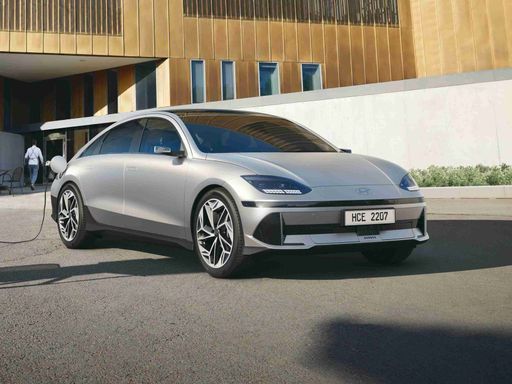
Hyundai IONIQ 6
Costs and Consumption
View detailed analysis
Engine and Performance
View detailed analysis
Dimensions and Body
View detailed analysis
Hyundai IONIQ 6
The Hyundai IONIQ 6 glides down the road with a poise that feels more runway model than commuter car, its sleek silhouette promising efficiency without trying too hard. Inside, a calm, minimalist cabin packed with clever, usable tech makes it a compelling choice for buyers who want electric motoring that's smart, stylish and quietly practical.
details
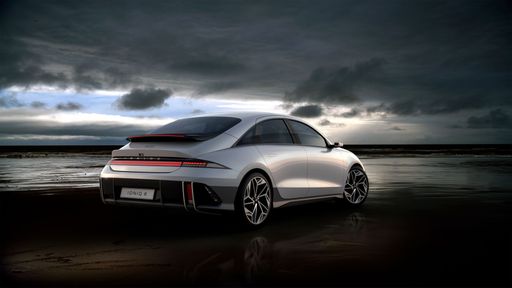
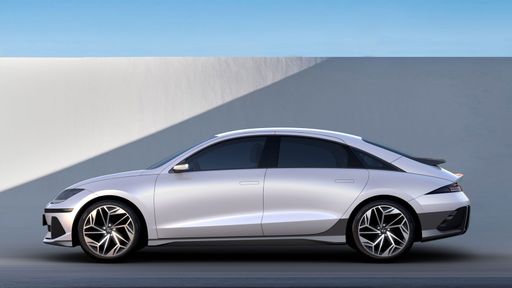
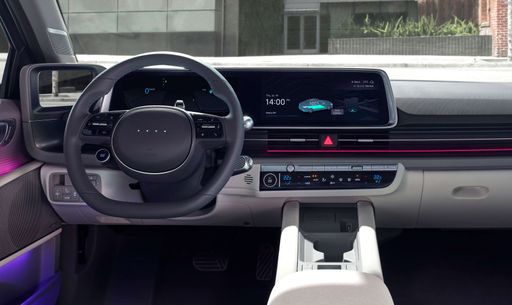
VW ID.3
The VW ID.3 is a crisply styled electric hatch that masks serious practicality behind a friendly, modern face, making city runs and longer trips pleasantly fuss free. For buyers seeking a sensible, well-equipped EV that doesn't take itself too seriously, the ID.3 strikes a neat balance of comfort, tech and everyday usability with a cheeky smile.
details
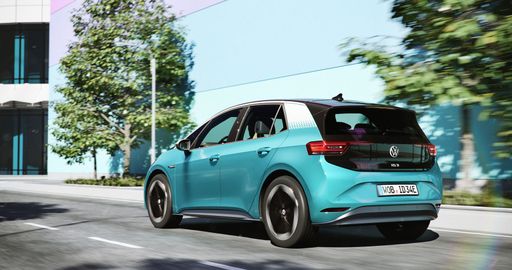
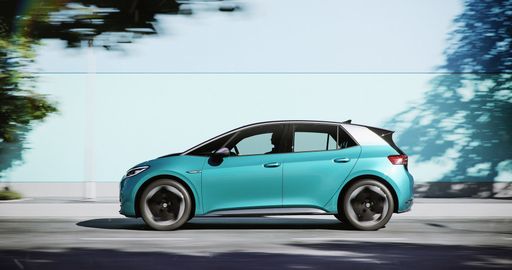
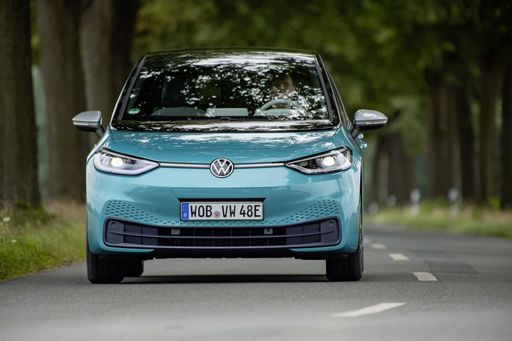
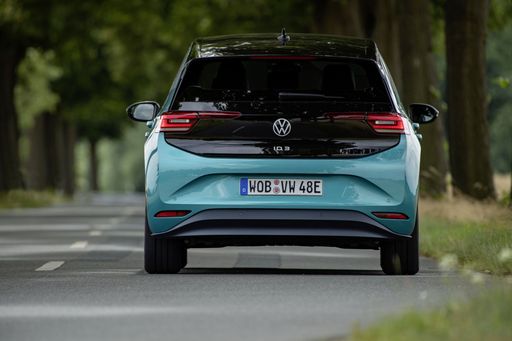
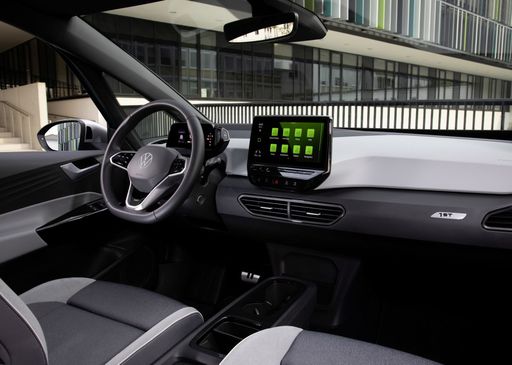


|

|
|
|
|
Costs and Consumption |
|
|---|---|
|
Price
37600 - 64300 £
|
Price
28600 - 49300 £
|
|
Consumption L/100km
-
|
Consumption L/100km
-
|
|
Consumption kWh/100km
13.9 - 15.1 kWh
|
Consumption kWh/100km
14.5 - 15.8 kWh
|
|
Electric Range
429 - 614 km
|
Electric Range
383 - 605 km
|
|
Battery Capacity
53 - 84 kWh
|
Battery Capacity
52 - 79 kWh
|
|
co2
0 g/km
|
co2
0 g/km
|
|
Fuel tank capacity
-
|
Fuel tank capacity
-
|
Dimensions and Body |
|
|---|---|
|
Body Type
Hatchback
|
Body Type
Hatchback
|
|
Seats
5
|
Seats
5
|
|
Doors
4
|
Doors
5
|
|
Curb weight
1850 - 2095 kg
|
Curb weight
1787 - 1993 kg
|
|
Trunk capacity
401 L
|
Trunk capacity
385 L
|
|
Length
4855 - 4935 mm
|
Length
4264 mm
|
|
Width
1880 - 1940 mm
|
Width
1809 mm
|
|
Height
1495 mm
|
Height
1564 mm
|
|
Max trunk capacity
-
|
Max trunk capacity
1267 L
|
|
Payload
425 - 430 kg
|
Payload
437 - 473 kg
|
Engine and Performance |
|
|---|---|
|
Engine Type
Electric
|
Engine Type
Electric
|
|
Transmission
Automatic
|
Transmission
Automatic
|
|
Transmission Detail
Reduction Gearbox
|
Transmission Detail
Reduction Gearbox
|
|
Drive Type
Rear-Wheel Drive, All-Wheel Drive
|
Drive Type
Rear-Wheel Drive
|
|
Power HP
151 - 650 HP
|
Power HP
170 - 326 HP
|
|
Acceleration 0-100km/h
3.2 - 8.8 s
|
Acceleration 0-100km/h
5.7 - 8.2 s
|
|
Max Speed
185 - 257 km/h
|
Max Speed
160 - 200 km/h
|
|
Torque
350 - 770 Nm
|
Torque
310 - 545 Nm
|
|
Number of Cylinders
-
|
Number of Cylinders
-
|
|
Power kW
111 - 478 kW
|
Power kW
125 - 240 kW
|
|
Engine capacity
-
|
Engine capacity
-
|
General |
|
|---|---|
|
Model Year
2022 - 2025
|
Model Year
2024 - 2025
|
|
CO2 Efficiency Class
A
|
CO2 Efficiency Class
A
|
|
Brand
Hyundai
|
Brand
VW
|
What drive types are available for the Hyundai IONIQ 6?
Available configurations include Rear-Wheel Drive or All-Wheel Drive.
The prices and data displayed are estimates based on German list prices and may vary by country. This information is not legally binding.
